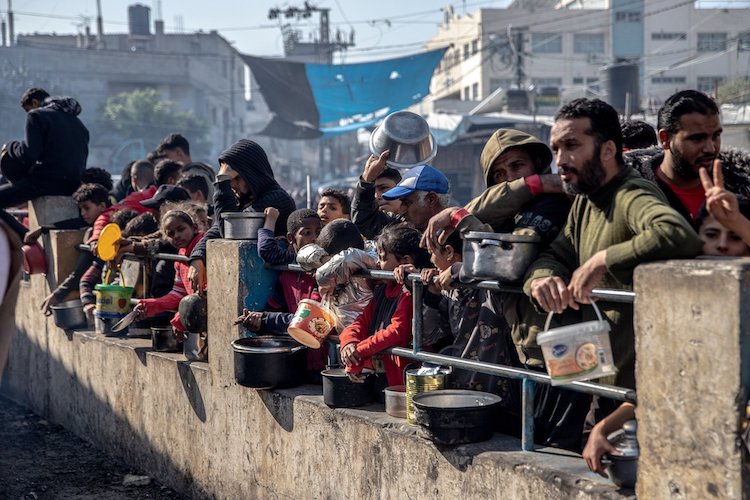By Jaya Ramachandran
GENEVA | 18 March 2024 (IDN) — The situation in Gaza is catastrophic, and northern Gaza faces imminent famine. According to the latest analysis from the Integrated Food Security Phase Classification (IPC) partnership released today, the rest of the Strip is also at risk. Over a million people are expected to face catastrophic hunger unless significantly more food is allowed to enter Gaza.
Before the recent months of hostilities, 0.8 per cent of children under five years of age were acutely malnourished. Today’s report shows that in the northern governorates, that figure is between 12.4 and 16.5 per cent as of February.
“The IPC announcement reflects the dire situation that the people of Gaza are facing,” said WHO Director-General Dr Tedros Adhanom Ghebreyesus. “Before this crisis, there was enough food in Gaza to feed the population. Malnutrition was a rare occurrence. Now, people are dying, and many more are sick.”
Conditions will continue to deteriorate without a significant and immediate increase in food, water, and other essential supplies deliveries. Virtually all households are already skipping meals daily, and adults are reducing their meals so that children can eat.
Long-term effects on the lives and health of thousands
WHO warns that the current situation will have long-term effects on the lives and health of thousands. Right now, children are dying from the combined effects of malnutrition and disease. Malnutrition makes people more vulnerable to getting severely ill, experiencing slow recovery, or dying when they are infected with a disease.
The long-term effects of malnutrition, low consumption of nutrient-rich foods, repeated infections, and lack of hygiene and sanitation services slow children’s overall growth. This compromises the health and well-being of an entire future generation.
WHO and IPC partners have been carrying out high-risk missions to deliver medicines, fuel and food for health workers and their patients, but our requests to deliver supplies are often blocked or refused. Damaged roads and continuous fighting, including in and close to hospitals, mean deliveries are few and slow.
The IPC report confirms what WHO and UN partners and nongovernmental organizations (NGOs) have been witnessing and reporting for months. When our missions reach hospitals, we meet exhausted and hungry health workers who ask us for food and water. We see patients trying to recover from life-saving surgeries and losses of limbs, or sick with cancer or diabetes, mothers who have just given birth, or new born babies, all suffering from hunger and the diseases that stalk it.
WHO, as a partner of the Nutrition Cluster, is currently supporting a nutrition stabilization centre in Rafah to treat children with severe acute malnutrition with medical complications, who are at the highest risk of imminent death if not urgently treated.
“We are supporting the establishment of two additional centres: one in the north of Gaza at Kamal Adwan hospital and one at the International Medical Corps field hospital in Rafah. WHO is supporting the pediatric wards of Al-Aqsa and Al-Najjar hospitals through the provision of nutrition supplies and medicines as well as training of medical personnel, and the promotion of appropriate infant and young child feeding practices, including breastfeeding,” states WHO.
Further nutrition centres are needed
WHO has trained health workers to recognize and treat malnutrition with complications. The organisation is supporting hospitals and centres with medical supplies for the children being treated.
Further nutrition and stabilization centres must be added in all key hospitals in Gaza. Communities themselves will need the support to scale up the management of malnutrition locally.
WHO and other UN partners are urging Israel to open more crossings and accelerate the entry and delivery of water, food, medical supplies and other humanitarian aid into and within Gaza.
“As the occupying force, it is their responsibility under international law to allow for the passage of supplies, including food. Recent efforts to deliver by air and sea are welcome, but only expanding land-crossings will enable large-scale deliveries to prevent famine. The time to act is now.” [IDN-InDepthNews]
Related: Conflict in Israel and the occupied Palestinian territory
Photo: The scarcity of food in Gaza is increasingly causing malnutrition and severe hunger among the population as the war continues. Credit: WHO












